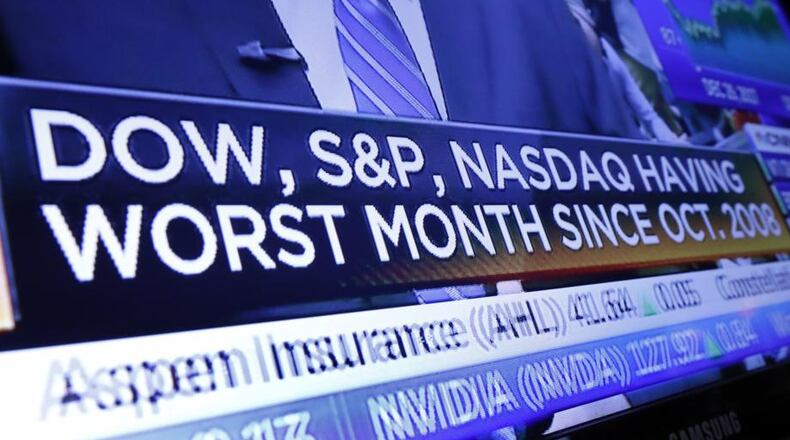The Dow Jones Industrial Average was down close to 300 points Thursday morning.
MORE: Downtown's newest office building will boost one of the city's most thriving areas
Shon Anderson, president of Dayton’s Anderson Financial Strategies and president of the CFA (Chartered Financial Analysts) Society of Dayton, said Thursday morning he did not initially foresee negative volatility to this extent in the market.
Still, the fundamentals remain, well, fundamental, he said.
This year is shaping up to the first since 2006 in which the U.S. economy grew at about three percent-plus, with earnings growth of nearly 20 percent for companies in the S&P 500 index.
“When you look at all the actual data, the data is nothing but positive,” Anderson said. “The only things we see that are negatives are opinions, such as forecast surveys.”
“It’s really a crisis of confidence,” he added.
For most investors, it can be counter-productive to monitor the stock market hour by hour, day by day. Behavioral issues can be the demise of the small investor, Anderson believes.
Data shows that the average investor who tinkers and reacts makes four percent per year less than a steady investor with a basic portfolio of 60 percent devoted to stocks, 40 percent to bonds, Anderson said.
“The reason for that is behavioral issues, such selling out at the wrong time or not investing due to downturns in asset classes,” he said.
His biggest point: Investors should keep financial goals in mind.
“If you’re not using your dollars in the next six to 12 months, then there’s really no reason to panic as negative portfolio years are expected and included in our projected returns.”
Doug Kinsey, a partner in Oakwood’s Artifex Financial Group — which manages about $130 million in client assets — acknowledged there has been plenty of volatility.
But the summer’s run-up in technology stocks wasn’t going to go on forever, he said. And overall, he sees a lot of strength in the economy, and rising interest rates often accompany strong economies.
“You can’t ignore the good things that are happening in the economy,” Kinsey said.
So what’s worrying investors? He points to the trade dispute with China, with the associated trade restrictions and tariffs.
“I think that’s probably got people more concerned than anything,” he said. “When will this get resolved? China is a huge trading partner. It’s having some impact on some industries — higher costs, etc.”
He hopes for some kind of resolution to the trade disputes, hopefully in the first quarter of 2019.
“Cooler heads will prevail,” he said.
For financial planners, Kinsey said their chief job is to preserve clients’ money and capital. They shouldn’t position too much of client assets in volatile arenas, such as stocks. Investors should keep a healthy portion of assets in investments that can safely weather temporary storms.
Bottom line, Kinsey would caution people not to make “knee-jerk changes,” unless they’re “overweight” in the wrong sectors.
About the Author

